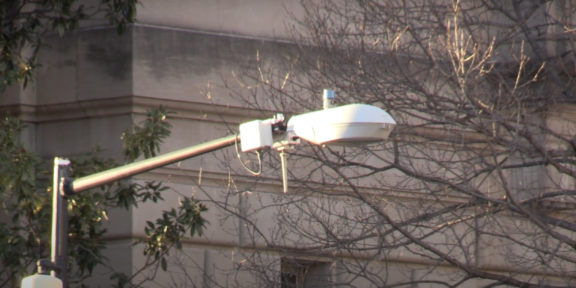Do We Really Need the Electoral College?
During the last presidential election, I was a senior in one ofChicago’s public high schools and had just been informed of amandatory community service requirement to graduate. In order tofulfill this requirement, I volunteered time with a series of voterregistration drives and empowerment initiatives, only to see all ofthe energy, effort and hope spent in vain when the candidate who somany came out in record numbers to vote for, was not selected.After seeing African American voters disenfranchised in Florida andother states and how families in my own neighborhood came out toplace a vote that was overridden by the electoral college vote, Iwas terribly disappointed and discouraged with the voting process.It didn’t help that I left Chicago to attend HowardUniversity in the nation’s capital weeks before the September11th tragedies.
Four years after the last presidentialelection, I am now a senior in college and though I have resolvedthat participating in the presidential election does not hurt acandidate, I can’t be sure that it helps either. I feel thatthe local elections are the most important because the statelegislature has the greatest impact on the implementation of lawsand also it is the State Legislature who determines how electorsare chosen…the electors then choose the president.
Although I voted for Barack Obama, I feel thatthe Electoral College makes it unnecessary to participate in thepresidential election. This does not mean that I trust thiscommittee to determine who should head the nation; instead I feelthat the Electoral College is antiquated, no longer necessary, andadds to the confusion of the voting process.
The Electoral College is outdated for manyreasons; first with improvements in media and technology combinedwith the access to information available to the public I believethat the American public can be trusted to make an informedpresidential decision. I also believe that today, the nation is farfrom the historical context in which the Electoral College wasinitially created in. The Electoral College, by William C.Kimberling, Deputy Director FEC Office of Election Administration,discusses four main reasons why the Electoral College was put intoplace; he says the Founders were trying to elect a president in anation that:
“was composed of thirteen large and small States jealous oftheir own rights and powers, and suspicious of any central nationalgovernment, was barely connected by transportation or communicationso that national campaigns were impractical even if they had beenthought desirable, believed that political parties were mischievousif not downright evil, and felt that “the office should seekthe man, the man should not seek the office.”
Considering these reasons, the only one thatis still applicable today is the fact that political parties are”mischievous if not downright evil” however, withinthis two party system, even the Electors belong to a politicalparty.
Further, the Electoral College is no longerneeded because generally the committee has voted the same way asthe popular vote since its inception. There have really only beentwo clear instances in which the Electoral College voted contraryto the popular vote, the first one was in 1888’s electionbetween Republican candidate Benjamin Harrison and Democratincumbent Grover Cleveland. The second one I would argue occurredin 2000’s election between Republican candidate George W.Bush and Democrat incumbent Al Gore.
Finally, having the Electoral College adds tothe confusion of the voting process. Many are unaware that thecommittee even exists and even more are unaware when they arevoting for members of the committee. As stated in the Kimberlingarticle, the individual party candidates for Elector are seldomlisted on the ballot. Instead, the expression “Electorsfor” usually appears in fine print on the ballot in front ofeach set of candidates for president and vice president. Voters areactually casting their votes for the Electors for the presidentialand vice presidential candidates of their choice rather than forthe candidates themselves—so call me to the television nextelection when the Electors are debating, or being interviewed.



